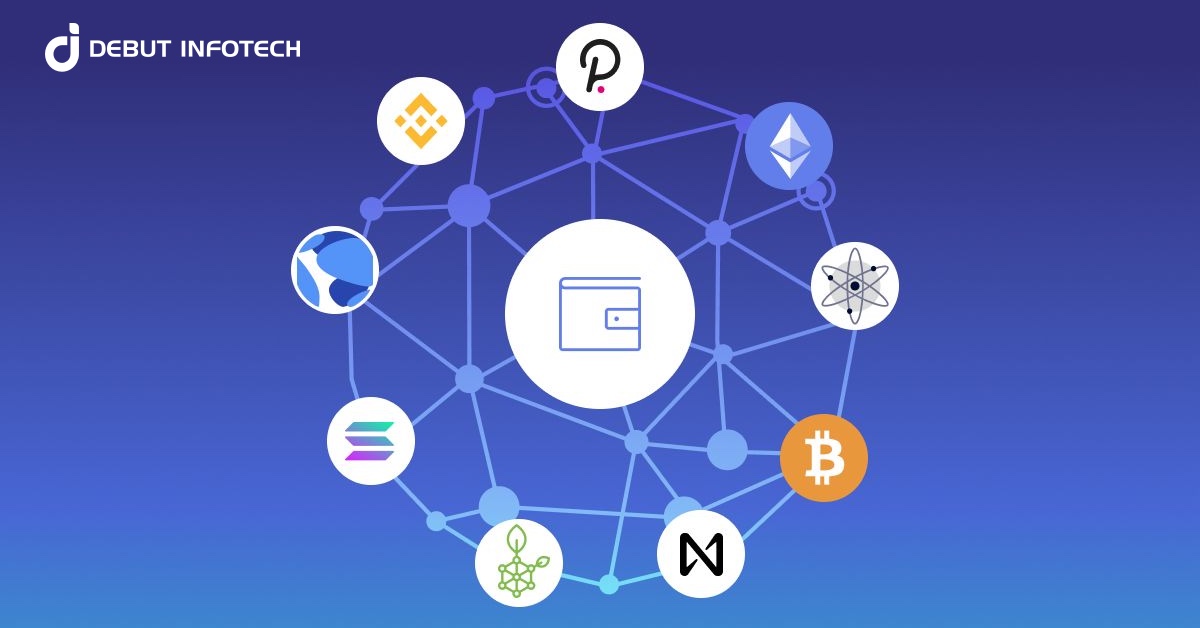The real estate industry, traditionally characterized by high entry barriers and limited liquidity, is on the brink of a transformative shift. This transformation is driven by the integration of blockchain technology, which has introduced a groundbreaking concept known as real estate tokenization. By converting physical assets into digital tokens, tokenization is revolutionizing how properties are bought, sold, and invested in. In this blog, we'll explore what real estate tokenization is, how it works, and why it's the future of property investment.
What is Real Estate Tokenization?
Real estate tokenization involves converting ownership rights in a real estate property into digital tokens on a blockchain. Each token represents a fraction of the asset, allowing investors to buy, sell, or trade their shares easily. This process democratizes real estate investment, enabling a broader range of investors to participate in the market by lowering entry barriers and increasing liquidity.
How Does Real Estate Tokenization Work?
Real estate tokenization relies on blockchain technology, a decentralized and immutable ledger that records transactions securely and transparently. Here's a step-by-step breakdown of how tokenization works:
- Asset Selection: The first step is to select the real estate asset to be tokenized. This could be a residential property, commercial building, or even land.
- Legal Structuring: A legal framework is established to ensure compliance with regulations. This may involve setting up a Special Purpose Vehicle (SPV) or a Real Estate Investment Trust (REIT) to hold the property.
- Token Creation: Digital tokens representing fractional ownership of the property are created on a blockchain. These tokens can be programmed with smart contracts, which automate and enforce the terms of the investment.
- Token Offering: The tokens are then offered to investors through a Security Token Offering (STO) or Initial Coin Offering (ICO), depending on the regulatory environment.
- Trading and Ownership: Once the tokens are issued, they can be traded on secondary markets, providing liquidity to investors. Ownership is recorded on the blockchain, ensuring transparency and security.
Benefits of Real Estate Tokenization
Real estate tokenization offers several advantages over traditional property investment methods, making it an attractive option for both investors and property owners.
1. Increased Liquidity
Traditional real estate investments are often illiquid, requiring significant time and effort to buy or sell. Tokenization addresses this issue by enabling fractional ownership and trading on secondary markets, allowing investors to liquidate their holdings more easily.
2. Lower Entry Barriers
Tokenization lowers the entry barriers for real estate investment by allowing investors to buy small fractions of a property. This opens up opportunities for a broader range of investors, including those who may not have the capital to invest in entire properties.
3. Enhanced Transparency
Blockchain technology ensures that all transactions are recorded on a decentralized ledger, providing transparency and reducing the risk of fraud. Investors can track the history of the property, ownership changes, and financial performance in real-time.
4. Global Investment Opportunities
Tokenization allows for cross-border investments, enabling investors from around the world to participate in the real estate market. This global reach increases the potential pool of investors, driving demand and potentially increasing property values.
5. Simplified Management
Smart contracts automate various aspects of property management, such as rental payments, dividends, and compliance with regulations. This reduces administrative costs and streamlines the investment process.
The Role of Blockchain Development Services in Real Estate Tokenization
To successfully tokenize real estate, it's essential to partner with a company that specializes in blockchain development services. These companies provide the technical expertise needed to create, manage, and secure digital tokens on a blockchain. They also offer blockchain app development services, which enable the creation of user-friendly platforms for buying, selling, and managing tokenized assets.
Blockchain Development Services
Blockchain development services encompass a wide range of activities, including:
- Smart Contract Development: Creating automated, self-executing contracts that govern the terms of the tokenized asset.
- Token Creation: Designing and developing the digital tokens that represent fractional ownership of the property.
- Security Audits: Conducting thorough security checks to ensure that the blockchain platform and smart contract are secure from vulnerabilities.
- Regulatory Compliance: Ensuring that the tokenization process adheres to local and international regulations, reducing the risk of legal issues.
Blockchain App Development
Blockchain app development plays a crucial role in making real estate tokenization accessible to investors. These apps provide intuitive interfaces for managing investments, tracking property performance, and trading tokens. Key features of a blockchain app for real estate tokenization may include:
- User Dashboards: Providing investors with an overview of their holdings, transaction history, and property performance.
- Marketplace Integration: Enabling the buying and selling of tokens on secondary markets directly within the app.
- Smart Contract Execution: Automating rental payments, dividend distributions, and other financial transactions.
The Future of Real Estate Investment
As blockchain technology continues to evolve, real estate tokenization is poised to become a mainstream method of property investment. The benefits of increased liquidity, lower entry barriers, and enhanced transparency make tokenization an attractive option for investors and property owners alike.
For those looking to enter the world of real estate tokenization, partnering with a company that offers comprehensive blockchain development services and blockchain app development is essential. These services provide the technical foundation needed to create secure, efficient, and user-friendly platforms that make real estate tokenization accessible to a global audience.
Conclusion
Real estate tokenization is transforming the way properties are bought, sold, and invested in. By leveraging blockchain development services and blockchain app development, investors can unlock new opportunities and gain access to a global market. As the industry continues to grow, tokenization is set to become the future of real estate investment, offering unprecedented levels of liquidity, transparency, and accessibility. Whether you're an investor looking to diversify your portfolio or a property owner seeking to maximize your asset's potential, real estate tokenization offers a revolutionary solution that is shaping the future of the industry.




.png)

Comments